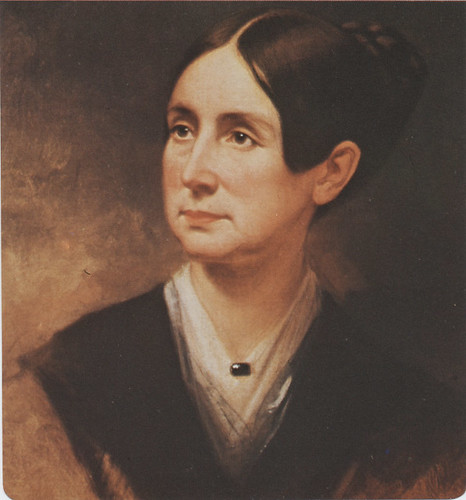Dorothea Dix
 Dorothea Dix was the most influential and important reformer of the mental illness and the prison system in the United States and Europe. An abusive household characterized her early life—her mother was mentally ill and her father, a preacher, was an alcoholic. Dix moved in with her wealthy grandmother and realized her dream of teaching when she opened her own school.
Dorothea Dix was the most influential and important reformer of the mental illness and the prison system in the United States and Europe. An abusive household characterized her early life—her mother was mentally ill and her father, a preacher, was an alcoholic. Dix moved in with her wealthy grandmother and realized her dream of teaching when she opened her own school.At the age of 39, she volunteered to teach Sunday school to female inmates at the local jail, where the living conditions were abhorrent. Prostitutes, inebriates, the mentally retarded and the mentally ill were mixed in the jail’s population with hardened criminals, without regard for gender. Dix collected numerous observations and compiled them into a report that was presented to the Massachusetts legislature in 1843.
And so began reform of the penal institution. Dix expanded her reform efforts to include almost all the states east of the Mississippi and travelled around Europe spreading her message of reform.
In addition, she spearheaded a proposition for the federal government to set aside millions of acres of land for the treatment of the mentally ill, the deaf, dumb and blind. The bill was passed by Congress, but was vetoed by President Franklin Pierce.
A dedicated patriot, Dix aided the North’s war effort by becoming Superintendent of the Union Army Nurses. She spent time training nurses to be more kind and caring in the care of their patients.
Dorothea Dix died in the Trenton State Hospital (photo below) that opened in 1881, thanks to her efforts.


